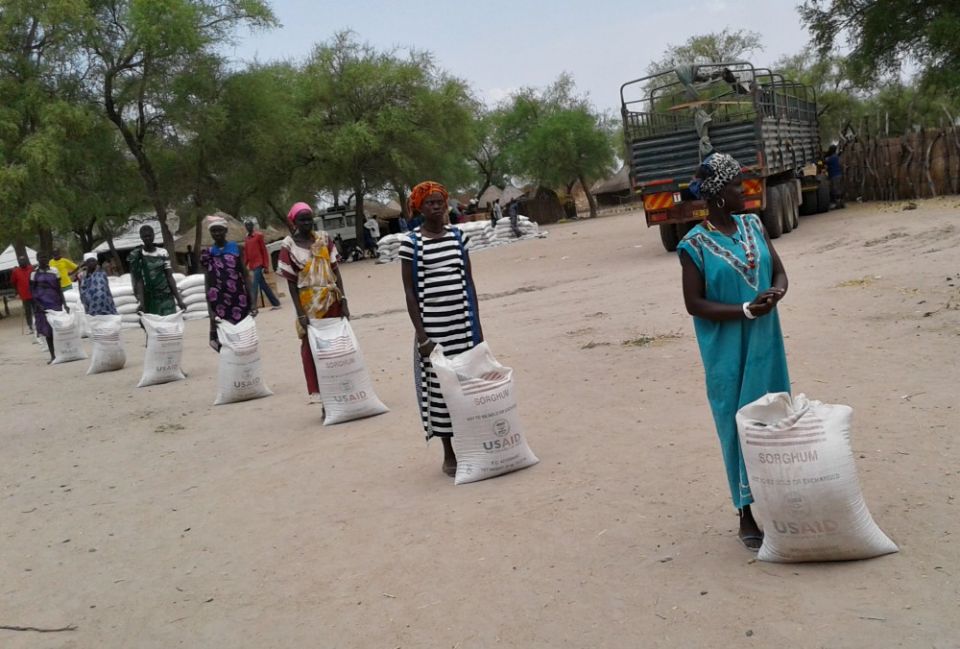We can't avoid news about the coronavirus pandemic. We're overwhelmed with information about preventing it, statistics about its impact and debates about how or when our society and economy can return to normal. Pushed to obscurity are important issues such as the ongoing struggle of women to be paid as much as men, or the hidden tragedy of domestic violence. Refugees and migrants remain trapped in dangerous situations. Farmers struggle with unstable economic and climate conditions. For many vulnerable people, the pandemic only makes their bad situations worse.
While it's common to hear people say "We're all in this together," coronavirus affects different people in differing ways. The pandemic is a life-and-death situation that everyone must take seriously. It adds another degree of crisis, however, to the lives of people who lack ways to stay clean, lack the means to pay for essential needs, or lack space to isolate from others – including others who might abuse them. Even when the pandemic finally goes away, their other problems won't.
Note: Activities in GSR in the Classroom instructor guides usually are designed to be used in classroom or parish settings by larger gathered groups. Because coronavirus precautions prohibit these gatherings, this activity is designed for at-home use and for online video gatherings.
Make sure each participant has a pen, a sheet of paper and five adhesive notes. Begin by saying: "Quickly trace your hand on the paper [pause for about 15 seconds while students do this]. I'm going to ask you to rate five aspects of your life by jotting a number on each of the four fingers and the thumb of your traced hand. You won't be asked to share these numbers. Each time you jot down a number, I'll ask you to cover it with an adhesive note. You'll rate things from 1 to 10, with 1 being low and 10 being high.
Ask the following:
- Rate how healthy you feel. Take 15 seconds to jot your number, then cover it.
- Rate how financially secure you feel. Take 15 seconds to jot and cover.
- Rate how confident you are about getting enough food and water. Take 15 seconds.
- Rate how comfortable you feel in your at-home isolation. Take 15 seconds.
- Rate how you feel about changes in the ways you learn during this pandemic. Take 15 seconds."
Begin by saying: "The notes are a bit like bandages, covering up things we want to protect or keep private, like we'd do with a wound or a blemish. During the coronavirus pandemic, people do what they can to protect themselves physically or emotionally. But let's take time to talk about how we're doing."
Ask the following, reminding students that they're not obligated to share ratings or personal details:
- Are you more concerned about the long-term future, or are you more concerned about getting through the challenges of each day? Why do you think that is?
- Bandages eventually come off, revealing whether things have gotten better or worse. Would you imagine your ratings of these aspects of your life will improve or worsen over time?
- Billions of people lack access to clean water or lack the space to isolate from others. Untold numbers of people live with or near others who harm or abuse them. How might their ratings compare to yours? Do you think the coronavirus crisis will improve or worsen their situations?
Conclude by saying: "No one is immune to the strain that the coronavirus pandemic puts on our world. Some people are in better positions to take care of themselves, while others depend more heavily on others. Around the world, Catholic sisters and relief agencies are responding to the needs of vulnerable people. We'll learn today about these efforts and ways we can support them. Let's start with prayer."
God, bless the poor
and the poor in spirit.
Use our hands and hearts
to heal all who suffer.
Amen.
Please give us your feedback! Fill out a quick survey about this lesson and how we can serve you better. Remember that its title is "COVID-19 threatens world's vulnerable people"
Tell us what you think about this resource, or give us ideas for other resources you'd like to see, by contacting us at education@globalsistersreport.org
